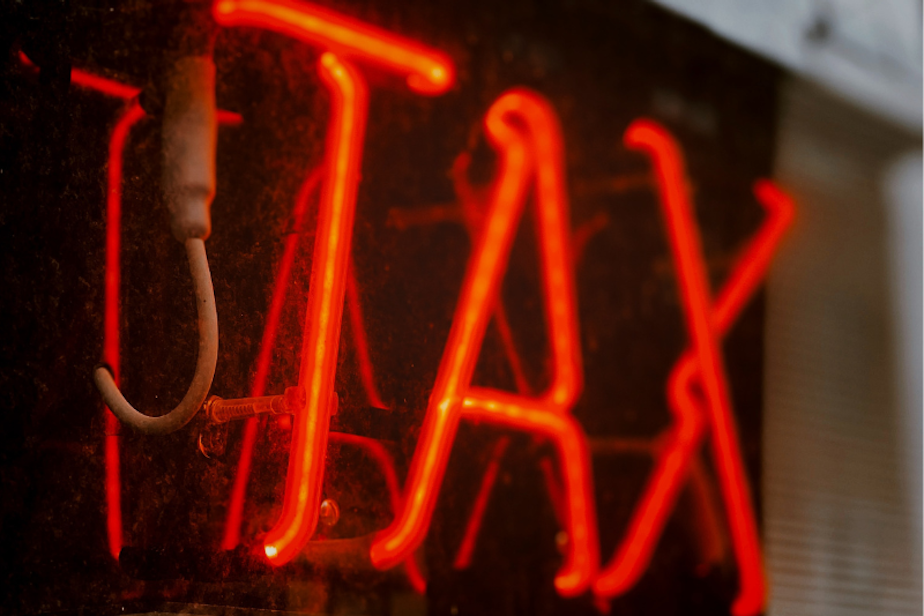Are we on the brink of a tax revolt in Washington state?

Cities all over the region have big property tax levies on the ballot this year.
There's a transportation levy in Seattle, a levy to modernize the fire department in Tacoma, and a levy to pay for public safety and libraries in Everett.
Increasingly, elected officials rely on these levies to pay for core services.
But some taxpayers are signaling there’s an end to their generosity.
Here's a look at how we got here, and whether we’re at risk of a tax revolt.
Angie Novak takes her little grandkids to the Peter Kirk pool in Kirkland.
"So as you can see, he just dived in," she says, pointing. "His little sister's throwing those rings in the water and they take turns with each other and they love it."
She wishes Kirkland had a pool that was open year round, but voters there rejected a levy that would have paid for that.
"Well, property taxes are very high here. Let's be honest," Novak says. "They're very high, but yeah, could we have used another pool year round here for the community? Absolutely. But could they have done something to not tax us so much?"

It's not just Kirkland's pool levy that failed recently. School levies also failed in Kent, Auburn, and Enumclaw.
These trends have King County Assessor John Wilson asking: "Are we on the brink of a tax revolt?"
Wilson is the person in charge of measuring the official value of properties in King County for the government. That influences how much property tax a homeowner owes. His staff go out and look at properties, sometimes encountering homeowners.
So, Wilson's office has his finger on the pulse of how homeowners feel about property taxes.
RELATED: When it comes to Seattle's property tax levy, renters are not immune
Sponsored
Here's how Wilson sees it. Over the years, state laws have limited how much city and county governments can raise property taxes. Right now, they can't raise them more than 1% a year, collectively.
That means local governments' ability to pay for services isn't keeping up with inflation, which is currently 3%.
So, governments have to ask voters to approve special levies, which voluntarily raise property taxes.
And as the funding gap widens, the levy requests get bigger and bigger over time.
"It's not the way the system should work, and it's frankly not sustainable," Wilson says.
Sponsored
It's not sustainable because eventually voters get fed up with their high property tax bills.
You can trace that pattern through history, according to Isabelle Cohen, an economist at the University of Washington.

She says start by looking at the property tax revolt of the 1930s.
"So during the Great Depression, the decrease in economic activity actually also meant that property taxes as a share of total taxes went way up, kind of similar to what we're sort of expecting now," Cohen says. "This led to one of the highest periods of tax non-compliance in the history of the United States that we're aware of. It also led to people organizing for changes to the way the government raises revenue."
Sponsored
RELATED: Booming episode "Are we on the brink of a tax revolt?"
The depression happened nationwide, but every state experienced it a little differently. In Washington state, farmers, who owned more land relative to city folks, paid a disproportionate share of property taxes, even though their farm incomes at that time were extremely low.
Washington farmers managed to get a law passed that limited the state's ability to collect property taxes.
Another period of history worth looking at was the 1970s, according to Cohen. There was high inflation, and during that time, state governments across the country turned to higher property taxes, and people rebelled again.
Then there was the anti-tax movement in Washington state in the 2000s led by Tim Eyman. That movement emerged out of a period when dot-com money was pushing property values up. And then we had a housing bubble. The combination of pressures drove property taxes higher and higher.
Sponsored
A lot of the laws we have today that limit how much the government can raise property taxes came out of movements like these, Cohen says.

It becomes a self-perpetuating cycle:
- Tax revolts constrain government,
- Government falls further behind.
- Government becomes dependent on ballot measures,
- which build up taxpayer resentment over time,
- until there's another tax revolt,
and the cycle continues.
Sponsored
Washington state is particularly vulnerable to this cycle because it doesn't have an income tax, and so relies more heavily on property taxes.
Whether we're on the brink of a tax revolt now remains unclear.
But we'll know a little more this fall, after voters cast ballots on some anti-tax initiatives and a bevy of new levies.
Hear more on KUOW's economics podcast, Booming:




